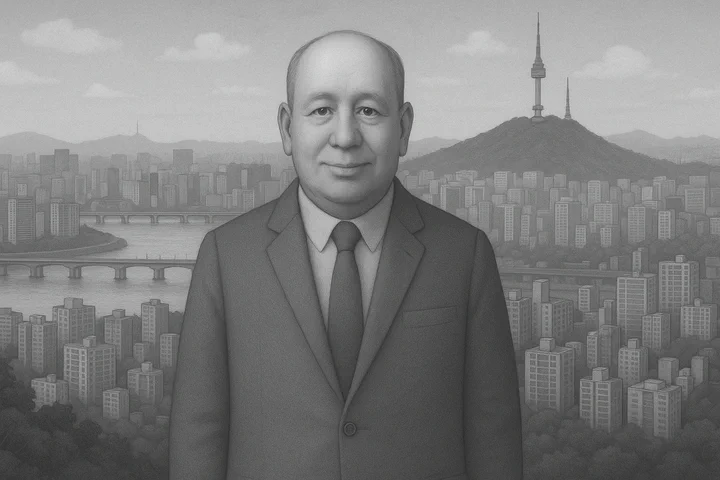The pointlessness of North Korea policy

At the moment, it’s impossible to escape. The parade of think tank briefs, university reports, blog posts, and earnest social media threads is already in full swing. After all, the moment seems irresistible — a relatively new U.S. president and a freshly minted South Korean one.
What better time to offer weighty advice on “how the president should handle North Korea”.
Never mind that the entire exercise is a ritual farce. Trump doesn’t read, let alone listen, and Lee Jae-myung will spend the next few years largely reacting to Washington’s mood swings, not shaping grand strategy. You may have awesome ideas, but they’re irrelevant!
In three years, your advice may be more relevant. Until then, it’s dunny paper. Just a testament to the fecklessness of the field and the glaring chasm between scholarly ideas and diplomatic practice (dunny = toilet for those not from Australia).
The delusion starts in the Washington Beltway.
The polite fiction that the Trump Administration—this one or the last—follows policy advice, reads intelligence briefs, or engages with interagency deliberation is exactly that: a fiction. I discussed related ideas in “Koreas policy in the age of narcissism”. What drives Trump’s approach to North Korea isn’t strategy, doctrine, or even basic intelligence. It’s television. Specifically, it’s Fox News, late-night ego preservation, and whatever emotional spasm happens to seize the president as he walks between the bathroom mirror and his Truth Social dashboard.
There is no “policy” on North Korea. There is only performance.
We saw this during the first Trump term: the sudden lurch from “fire and fury” to love letters from Kim Jong-un, all staged for optics, not outcome. The handshake at the DMZ? Pure theatre. The Singapore summit? A diplomatic Tinder date with no second call. There were no deliverables, no verification mechanisms, no long-term goals. It was all staged to create a news cycle and a photo op that Trump could sell to his base as “historic.” And for that narrow purpose, it worked. For every other purpose—regional stability, nuclear risk reduction, or actual diplomacy—it was a flaming clown car.
And yet, the chorus of experts is tuning up again. Policy papers about how to handle the North are everywhere. What confuses me is that these authors are very competent and highly respected. They’re widely quoted, prominent in mainstream news commentary, and called on by governments for insight into regional events.
Yet, for some weird reason, they didn’t absorb the central lesson of the last decade: Trump doesn’t do plans. He does vibes. He doesn’t read policy briefs; he reads cable news crawlers. If your analysis can’t be shouted by a pundit between commercials for gold coins and testosterone supplements, it’s not making it to the Oval Office.
So, go ahead, draft your roadmap to de-escalating tensions or phased denuclearization. Outline your regional security architecture with buy-in from Beijing and Tokyo. Spin new meaningless terms and write your bullet-point speaking memos. But don’t pretend it’s going to shape anything.
If the president wakes up one morning and sees a Fox segment about how Kim Jong-un expanding his nuclear arsenal or testing a nuclear weapon and there’s some domestic issue necessitating diversion, he’ll tweet out a threat of nuclear war before your executive summary hits a staffer’s inbox.
The delusion runs just as deep in Seoul.
The foreign policy community has also prepared their briefs and op-eds for the new South Korean administration. Some argue for “strategic clarity” with the U.S.; others argue for “strategic autonomy” in a multipolar world. But all of them pretend that the South has meaningful capacity to “shape” Washington’s approach. They imagine Seoul has an ability to meaningfully act as a “middle power” and that this actually means something (academic paper busting this idea on the way).
The idea is that by making the right moves—signaling discipline, proposing new confidence-building measures—they can position themselves as indispensable players. But this only works if there’s a coherent mind on the other end of the table. What they’ll get instead is a Trump White House that might mistake a Blue House delegation for a golf caddie crew. And then forget the meeting happened.
Here’s the ugly truth: the only “policy option” that matters under a Trump presidency is whether you can manufacture a moment that flatters his ego and gets airtime.
Psychology matters, not foreign policy.
It’s not about deterrence or diplomacy—it’s about dopamine. Trump’s attention span is so fragmented that any “strategic engagement” must compete with his golf schedule and cable news cycles. If you want results, hire a former Miss Universe winner to hand him the policy brief on a gold platter with a Newsmax camera crew in tow.
What does this mean for North Korea? It means Pyongyang potentially holds all the cards. They no doubt know exactly how to bait Trump. They understand that launching a missile and calling him a “dotard” might actually improve the odds of a summit. Trump craves spectacle, and North Korea knows how to deliver it. The Kim regime is the only one in this game that grasps how performative the entire charade has become.
So let’s be honest. If you’re writing a North Korea policy brief for the next three years, you’re either delusional or employed.
And to be fair, most people in this field are both. Academia and thinktanks reward publication, not realism. Think tanks reward the illusion of influence, not the substance of outcomes. There’s always another grant application around the corner, another symposium to fill.
But if you’re genuinely serious about influencing policy, maybe wait until there’s an actual policymaker interested in listening. Because until then, your “policy options” are just decoration for a game that’s already been scripted—and not by you.
